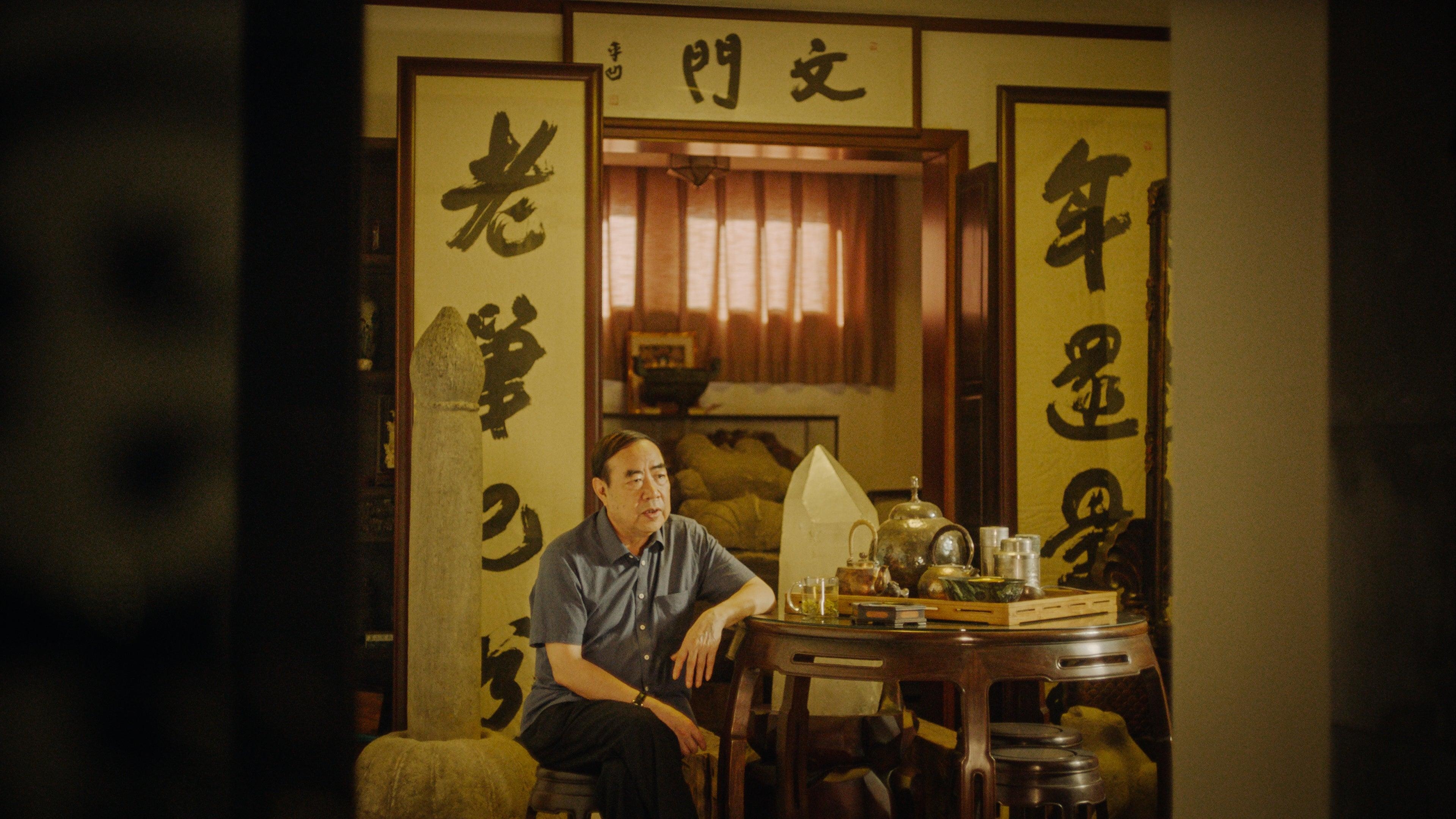The great director Jia Zhangke profiles literary heroes in Swimming Out Till The Sea Turns Blue
Film Reviews Jia Zhangke
The director Jia Zhangke has spent so long as an artful chronicler of China’s changing present and disappearing past that it has become all too easy to take his work and talent for granted. Yet no one else has a keener eye for moments in cultural time—for the way a pop song, a car, or a bootleg video can encapsulate not merely the fashions of an era but such nebulous concepts as the future. A Jia film can be ironic or melancholy, satirical or sentimental, but it is always closely observed. In Swimming Out Till The Sea Turns Blue, his first foray into feature-length documentary filmmaking in a decade, he ruminates on themes close to his heart—among them, the relationship between telling stories and living through history.
Nominally, the film is about four Chinese writers of different generations, three living (Jia Pingwa, Yu Hua, Liang Hong), one dead (Ma Feng). That Jia has literary affinities has long been obvious from the structures of his films, whether it’s the novelistic, decades-spanning narratives of Platform, Ash Is Purest White, and Mountains May Depart, or the anthology format of A Touch Of Sin. He is not here, however, to pose questions about literature per se, or to peer into the writing process. That much is obvious from the first section, which introduces Ma, a writer who hailed from Jia’s home province of Shanxi, through interviews with a couple of nonagenarians who remember the author hazily as an organizer in their rural community in the late 1940s and early ’50s.
Across the extended, handsomely shot sit-down interviews (with Ma’s daughter and the three other writers), what emerges is a fragmentary oral history of Chinese rural life across several transformative decades of the 20th century: family stories, tragedies, remembered slogans, the particulars of trying to grow crops in alkaline soil or coming of age as the son of a declared “counterrevolutionary.” Sprinkled throughout are interludes that look like they belong at the edges of a Jia film, in which the telephoto lens of his longtime cinematographer, Yu Lik-Wai, gazes upon trains, cafeterias, and card games. There’s even the requisite needle drop of a once-ubiquitous hit: the Andrea Bocelli and Sarah Brightman crossover single “Time To Say Goodbye.” (Curiously, this is the second nonfiction film in a year to use the song; it also appeared in The Mayor.)
Still, this is largely a film of interviews, occasionally engrossing, sometimes rambling, and diffuse in a manner specific to minor works by major filmmakers. In a coda, Jia interviews the teenage son of Liang Hong, the youngest of the profiled writers, by a river described in one of his mother’s books. A pimply teen with a pair of wireless headphones dangling around his neck, he no longer remembers his grandparents’ dialect and plans to study physics. The loss of language, the generational divide—these are the themes of a Jia drama. As is, incidentally, the idea that a brighter future sometimes means a dimmer past. Perhaps illuminating the latter is what books are for.
5 Comments
So this sounds closer to 24 City than to Touch of Sin? Works for me, Jia’s docudramas are usually amazing.
Okay, for someone who kinda hated 24 City and merely didn’t like A Touch of Sin, should I try more Jia Zhangke or just assume he’s not for me and move on?
I’m not sure, since I found A Touch of Sin to be my favorite of his movies that I’ve seen. I find him to be an insightful film maker, but really uneven. I thought A Touch of Sin was the most consistent of the three movies of his I’ve seen. Mountains May Depart is great, but its last third is absurd and bizarre. Ash is Purest White seemed unfinished, or at least unsatisfying, despite a lot of great vignettes.He’s interesting enough to me that I’ll keep checking his stuff out, with a “see what happens” attitude.
My entry point to his work were “The World” and “Still Live”, both of which I immediately loved.
I’d say that it could be worth it to give at least “The World” a try. Jia Zhangke is better known for his movie with “epic scope”, spanning multiple narratives and decades. “The World” is comparatively small, more focussed, fewer protagonists, you could say. It’s possible that his other qualities — the careful observation, for example — might be more visible in that context.
This is one of those documentaries that feels dominated by the unsaid and unseen, by outside knowledge. I don’t even a ton of familiarity or ease with Chinese history—recent or otherwise, but I have some and that was a weight throughout the interviews. The openess of the interviews but also the selection and choices their making when talking about periods like the Cultural Revolution are so specific.It’s weird, I understand it’s position as a minor work in the career that has greater works with more volume and influence and hopefully still to come, but I also can’t help but feel that this is underrated in the reviews that I’ve read because the weight of that history, and the weight of talking about in a country where the party that perpetrated those events is still in power, maybe isn’t felt the same way. The negative space isn’t just empty or unspoken, there’s something there too.